Winter can mean a lot of things:
- Heading to the mountains for skiing
- Building a fire in the fireplace
- Snuggling up with hot chocolate
- Snowshoeing through a park
While you may have it all on your calendar to experience this year, the one thing you shouldn’t face is a dead car battery. Winter weather takes a toll on car batteries. Here’s what you should do now before the winter weather sets in.
Why do car batteries die?
What do car batteries do? One of its biggest jobs is to provide a jolt of electricity necessary to run all of the electrical components in your car. If the battery doesn’t start, your car won’t start. You won’t be going anywhere.
When you first get into your vehicle and turn the key, a chemical reaction moves your car into action. When the battery receives a signal from the car’s engine, the chemical energy stored deep inside converts to electrical energy, which powers your car. That sudden voltage moves the starter into action.
The battery also works to keep the electrical current steady. Not only does a car battery start your vehicle, but it also provides a stabilizing voltage to keep the engine running. It operates many of the accessories you rely on each day.
Batteries die for many reasons: physical damage, temperature fluctuations, corrosion, discharge, or general wear and tear.
It’s cold outside … take care of your car battery
Outside weather also plays a vital part in battery health. While summer heat has its own damaging effects, winters can slow down the chemical reactions and cause the battery to discharge frequently.
When it’s cold outside, everything we do slows down. We bundle up more. We look for ways to retain heat.
Cars work similarly. The colder it gets outside, the longer it takes for your vehicle to warm up. Coolant takes longer to heat, meaning it takes longer for the engine to warm. This impacts the car’s heater, which creates a colder environment in the passenger compartment. The longer it takes to heat, the lower response time your battery delivers. It takes a while for it to fully charge.
And if it’s weak before you turn the key, it takes even longer. If it starts at all.
Car batteries have a short lifespan
A car is made up of about 10,000 parts. Different components have different lifespans depending on age and use.
Car battery life varies anywhere from 3 to 6 years, depending on climate, upkeep, corrosion buildup, and battery manufacturer. Regular maintenance significantly affects how long a car battery will last.
Warning signs your car battery may be failing
Like other parts, your car battery rarely fails without a few telltale warning signs. If you notice any of these, it’s a sign to bring your car in for inspection sooner rather than later.
Flickering or dimming headlights – because a battery powers your car’s accessories, it’s one of the first places you’ll notice weakness. If your headlights, taillights, or interior lights seem dimmer than before, there’s a good chance your car battery is slowing down. Another sign is if the lights flicker when you rev the engine. Their brightness depends on how much power the battery generates. If all of its resources are moving to the engine, that means less output in things like lights.
Slow car turnover – a vehicle’s engine requires the battery to start and stay running. It requires electrical power during the startup process. This is one of the most power-driven moments for a batter. If it’s not up for the job, you’ll notice it in the way your car cranks over and starts. A slow cranking engine is a surefire sign of a weak battery.
Clicking sounds – when you turn the key, the battery sends some power to the car’s starter solenoid as it works to turn on the engine. The solenoid converts this power into energy that the engine uses during startup. If the battery isn’t working properly, the starter solenoid won’t receive the necessary power to start the engine and keep it running. This produces a clicking sound as you turn the key. Any unusual sounds as you try to start the vehicle should be inspected sooner rather than later.
Jumpstarts – many drivers carry jumper cables in their trunks for the “just in case.” As winter brings in cold weather, not only will they protect you, but they can also help a friend in need. But jumpstarting a battery will only work for so long. If you do this once to your car’s battery, it’s a sign of a weakening battery. It’s your notification that it’s time to invest in a new battery. If you jumpstart your battery more than once, you risk reaching a point when that will no longer work. You risk being stuck with a dead battery that can no longer be revived.
Corrosion – like other car parts, you should inspect your battery from time to time. Corrosion is often noticeable at the connecting terminals on your battery. You’ll notice it as a bluish-green deposit, a white powdery deposit, or as a transparent film. You can clean it up to gain more life, but it is a warning sign of a bigger problem. Consider its age; as they reach the end of life, replacment is the only assurance to prevent a dead battery.
Damage – over time, a car battery can experience damage inside or out. Weak cells may experience frequent discharge, which can cause damage. Extreme temperature fluctuations can cause the battery to contract and swell. Depending on where the battery is, it can experience damage from external sources. If you see anything that looks suspicious, schedule an inspection to have it checked out.
It’s time to give your car battery a little TLC
Winter is coming. You can’t stop the temperatures from diving past freezing.
Will your vehicle be ready for it?
Before the cold sets in, schedule an inspection to ensure your car is ready for the season. Checking the battery early will tell you whether it’s in good condition for the upcoming season, or if it’s time to replace it. It’ll help you make an informed decision rather than waiting for a problem at the most inopportune time.

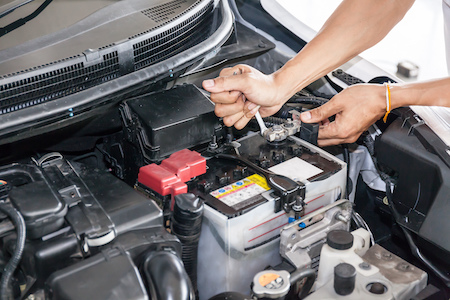
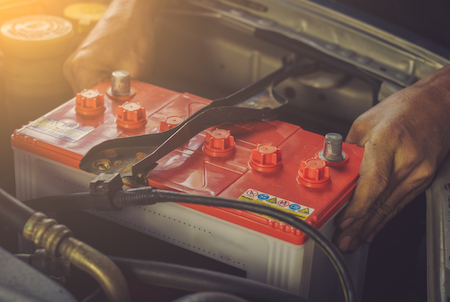
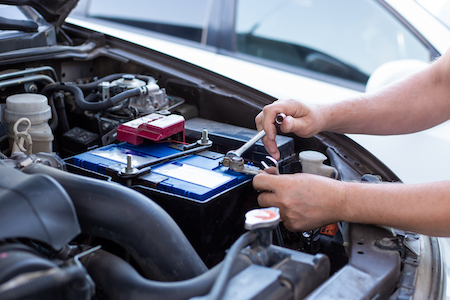
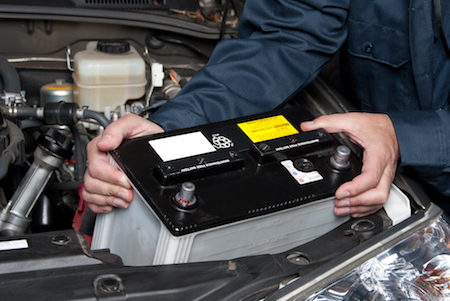
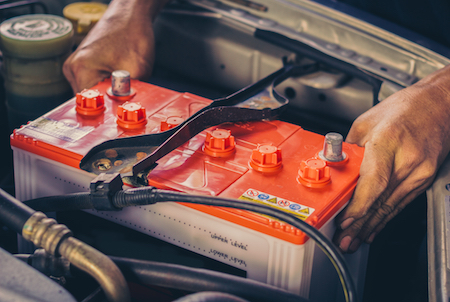 Like tires, car batteries are one of the most recognizable parts on your vehicle. That’s because you can find them almost anywhere, even on the shelves of your favorite membership stores.
Like tires, car batteries are one of the most recognizable parts on your vehicle. That’s because you can find them almost anywhere, even on the shelves of your favorite membership stores.
